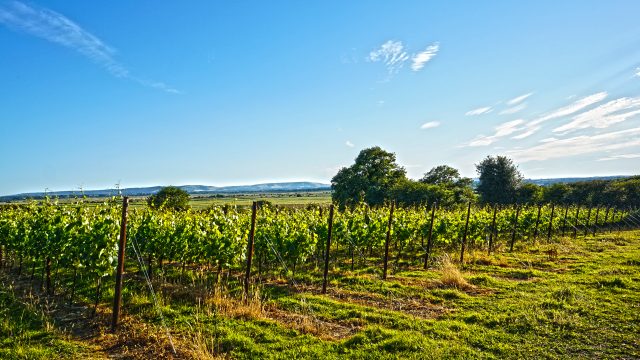Blast of the summer vine: English wine growth continues
Climate change has been impacting grape-growing globally, but as predicted English wine producers have become the winners of warming temperatures.

Turnover at the biggest producers of English wine has grown by 15% in the past year, which itself follows a three-fold rise in the past half-a-decade, according to new data from accountants UHY Hacker Young.
Particularly benefiting have been the well-established vineyards in the south of the country, across the Sussex and Kent chalklands, which producers are keen to stress is the same bedrock as found in Champagne and the north of France.
But in the past weather has hampered investment in English vineyards, with the infamous British temperate climate holding back capital investment. Yet higher crop yields from more reliable and warmer weather, and a concerted movement by farmers and agricultural businesses towards grape-growing, has driven investors into the sector.
As a result, the English wine world is now in a state of flux, as first generation investors look to potentially cash-in, with Chapel Down currently up for sale as it looks to develop a £32m development and winery, and other big players such as Lord Ashcroft’s share in Gusbourne, also placed onto the market.
Partner Content
Diversify
According to James Simmonds, partner at UHY Hacker Young, investment is driven by a “desire to diversify production away from areas where crop yields are being damaged by climate change.”
He said: “Traditional European vineyards are experiencing much hotter climates, with France in particular experiencing milder winters with sudden frosts that are killing off grape growth.”
While the global figures from the International Organisation of Vine and Wine (OIV) reveal a decline of 9.6% in wine production last year, it comes against a backdrop of the biggest UK vineyard harvest of all time, as 22m bottles were produced – almost double the figure from only a few years ago.
Tourism
In addition, the beautiful southern English countryside is a critical player in the growth of wine businesses, as producers look to turn a profit on the tourism aspect of wine, which can be 25% of overall income, including partnering with hotels, having restaurants on-site, and tasting experiences.
Simmonds said: “Some vineyards target younger audiences by offering customers hotel stays or even seasonal events that are catered to families as well as wine drinkers.”
Related news
Domestic growth and premium demand drive UK wine market
‘Business as usual’ for Ridgeview as English sparkling wine producer enters administration
‘We are crazy’: Gusbourne tasting shows the ambition behind English wine’s rise




